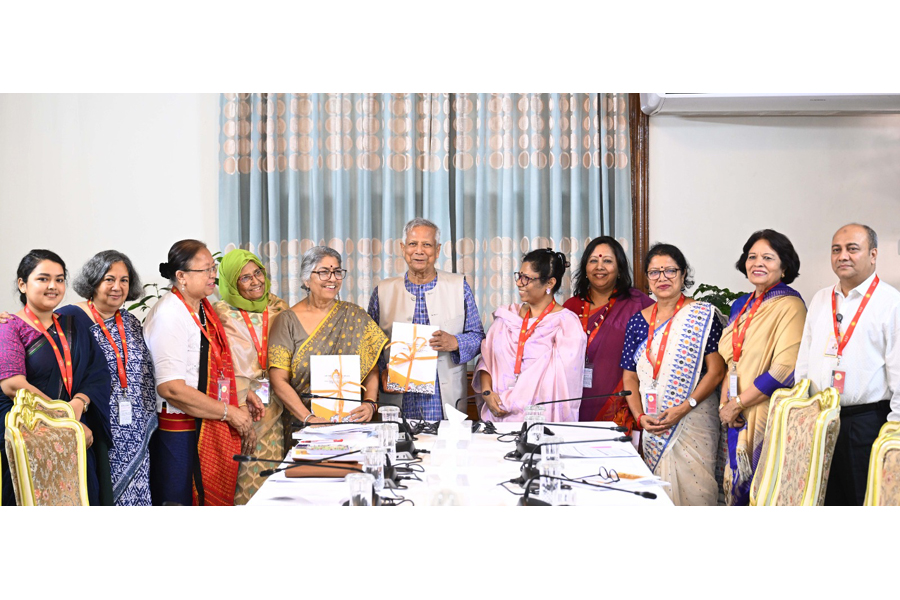
Published :
Updated :

The set of recommendations, prepared and unveiled by the Women's Affairs Reform Commission last week, has already sparked strong protests, especially by various Islamist parties in the country. These parties, along with several clerics, blasted the commission for a deep conspiracy to destroy the religious balance, family structure and social stability in the country. They have alleged that a number of recommendations contradict the basics of the Holy Quran. One of the main objections against the recommendations concerns introduction of a uniform family law and equal property rights for men and women.
The commission recommended promulgation of an ordinance to ensure equal rights for women of all religions in marriage, divorce, inheritance, and maintenance through a uniform family law. It also suggested that at the very least, steps should be taken to draft the law now and implement it on an optional basis for all communities. There is no doubt that such a recommendation is subject to controversy especially in a country having a Muslim majority.
In Bangladesh, the Muslim Family Ordinance 1961 is the umbrella law covering all Muslim family-related affairs. Inheritance is also determined according to the law following Quranic instructions. In the Holy Quran, there are clear guidelines for distributing inherited property and assets left by someone. In some cases, there are complexities in calculation which requires strong knowledge to decode the instructions rightly. Taking advantage of these complexities, male members of some families deprive women members of their due shares. To do so, the male members get help from unscrupulous experts on Muslim family law who misinterpret Quranic instructions and relevant Islamic rules. So, it becomes difficult for women to claim and get their due shares in the property or assets inherited by them. Generally, Muslim men receive double the inheritance share compared to women, though the share distributions are subject to number, gender and relation of the legal heirs. It means, there is no rigid rule that men will always get double the women's share.
To make the distribution of Muslim's inherited property easy, the government has already introduced an online calculator named the Inheritance Calculator. Using the calculator, it is now possible for anyone to find the due shares of the heirs who are legally entitled to the property left by their predecessor. Again, due to ignorance, many people, especially women in the country, are unable to take advantage of the calculator.
It is true that patriarchal mentality and male-dominated guardianship in society are rooted and supported through the misinterpretation of rules and codes of religion. So, it is impossible to change the existing laws and practices suddenly. Instead, what is more important is focus on proper implementation of the existing laws in terms of inherited property and asset distributions. The commission's recommendation on implementing the uniform law as optional for the time being is misleading and subject to legal complexities. Moreover the interim government is not in a position to go ahead with the sensitive and controversial matter, especially when the national election is a key priority.
Nevertheless, if the interim government wants to proceed, it must first pacify the protests and objections through consultation and discussion. There is a need to examine the objections raised by different quarters. Moreover, the recommendations by the commission also need to be reviewed carefully as the so-called radical progressive attitude has failed to consider the ground realities and other complexities in the country.
One must keep in mind that family-related affairs in Bangladesh are traditionally and generally guided by religious codes and social practices. Generally, people of all religions attach importance to the orders and guidance set by their respective religions. So, any change or deviation from the religion-based codes is not acceptable to most of the people. Misinterpretation of a religious guideline is one thing, while an attempt to modify or change the order is another issue. Against the backdrop, the move to introduce a uniform family law will bring further societal chaos and cause unnecessary tensions.
asjadulk@gmail.com


 For all latest news, follow The Financial Express Google News channel.
For all latest news, follow The Financial Express Google News channel.